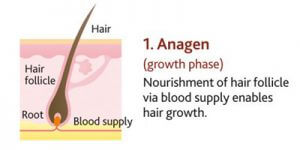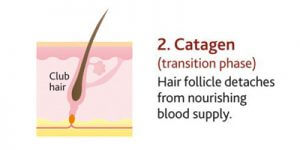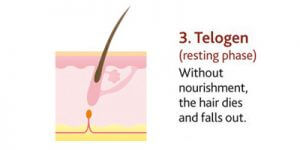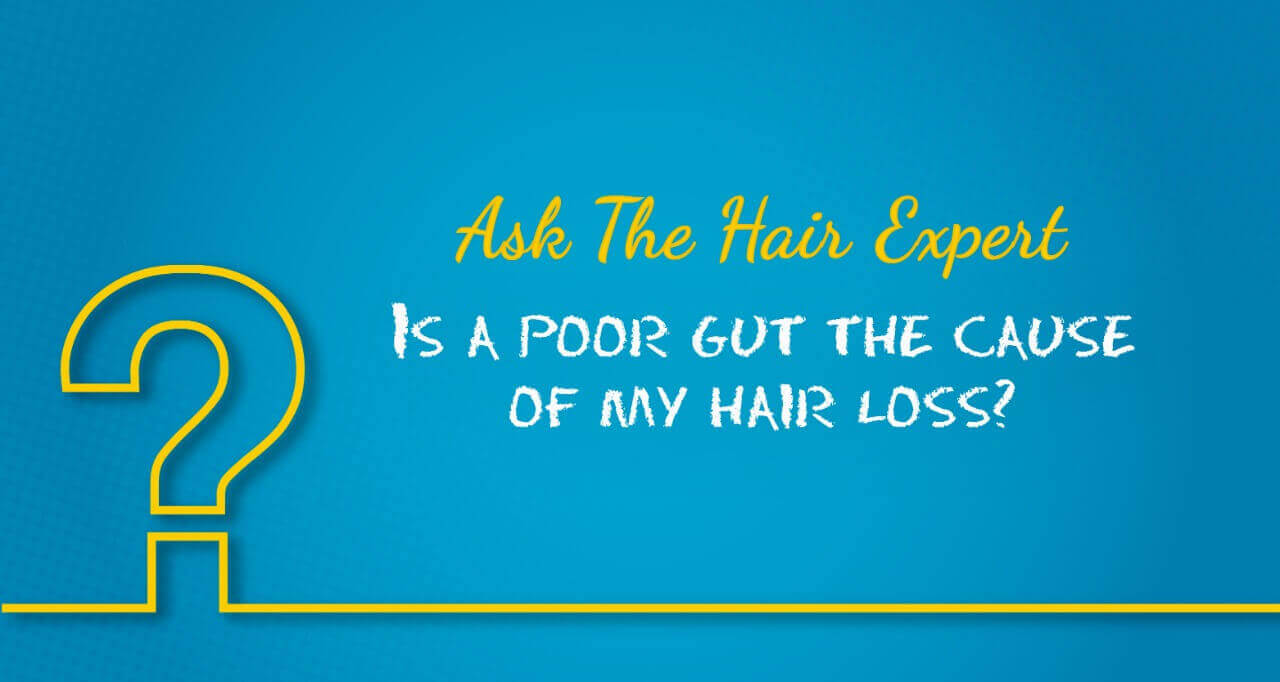‘Rapunzel! Rapunzel! Let down your hair!’
Who hasn’t been fascinated with Rapunzel’s hair as a child? And as adults, fascination with long hair continues, isn’t it? And at the other end of the spectrum…concerns about losing hair!
Week-on-week we get questions on hair loss, hair growth and advice on hair care. This week we have got some specific questions on how one can grow hair faster! Can something be done to make hair grow at an accelerated pace?
So here we are, yet again, with the ‘Ask the Hair Expert’ series, to give you some answers and clarity on this very subject.
You asked: “How can I get my hair to grow faster? Why is my hair growing so slow? What should I eat to grow my hair fast?!”
Here’s the answer from the Hair Experts.
There is no one magic potion to make your hair grow faster!
But there are things that can be done to aid growth, avoid breakage and thereby promote healthy hair growth!
Understand this better with the help of a Trichologist!
Let’s first have a quick recap on how your hair grows, then move on to what you can to aid your hair growth.
Hair growth cycle
Each hair is born in a hair bulb present in the hair follicles. The hair bulb is a miniature factory where the cell division takes place. As more cells divide, the older cells are pushed outside the hair bulb and it grows out as a hair shaft. Each hair typically proceeds through three important phases in its growth cycle, Anagen, Catagen and Telogen.
Anagen is the growth phase. The cell division happens rapidly, the older dead cells are pushed outside the hair bulb where they get keratinized and the baby hair starts to grow. On average, each hair grows by about half an inch each month (1 to 2 cms a month or 0.3 mm to 0.5 mm a day). No other organ of our body grows at this rate! At any given time 85% of your hair follicles are typically in the growth phase.

Catagen is the resting or transitional phase. The hair stops growing when it enters the Catagen phase and stays in this phase for about a month. At this stage, the hair follicle from which hair strand has grown starts to shrink. At any given time an average 1% of hair is in the resting or Catagen phase. However, hair doesn’t fall out at this stage.

Telogen is the final phase when the matured hair falls out. It is hence also referred to as the falling phase. Once the hair falls out, the hair follicle re-enters the Anagen or the growth phase. At any given time approximately 10% of hair is in the Telogen phase.

Changes in your hair during your lifetime – A/T Ratio
The Anagen phase lasts for about 3 years, the Catagen phase for about a month and Telogen phase for about 3 months. Now, this is the ideal growth cycle that a hair strand goes through.
During our lifetime, we have about 25 hair-growth cycles. It is important to note that the total number of hair usually remains constant, in spite of hair going through different phases.
Ideally, the ratio between Anagen and the Telogen phase (known as A/T ratio) is usually 80:20, meaning, 80% of the hair is in growing phase and 20% are in the falling phase.
Hair growth is affected by diet, lifestyle, hair care and also external factors such as season changes. Growth rate also changes with age – it slows down as you age.
Thus, there isn’t any ONE thing that you can do quicken/fasten the pace of hair growth. However, there are ways and means to ensure that you aid your hair growth, keeping it in the anagen phase for the minimum time it needs, and avoid it slipping into telogen phase & staying there for longer than the expected 3 months! A visit to your Trichologist can help you understand your A/T Ratio, to check on what you need to do to ensure that your hair grows at the expected normal pace and stay healthy.
Factors that affect the hair growth cycle
- Hormones – Female hormones generally have a favourable effect on hair growth, whereas male hormones have a negative effect on hair growth. Conditions that affect hormonal balance like diabetes, thyroid, PCOD etc lead to hair loss and stunted hair growth. Hormonal changes as one ages, also has a hand to play on your hair.
- Genetics – Genes play a very important role in hair growth and related tendencies. Many say that having long healthy hair is a genetic roulette! There are things that you can do to change course, but to some extent, genes are capable of throwing you a hardball.
- Stress – Stress is one of the primary factors which lead to many hair problems, hair loss being one. Stress can affect the culture within your body that can have a direct impact on your hair growth cycle. Do read our blogs on how stress can affect your hair.
- Diet – A poor diet leads to hair problems, especially which lacks proteins, minerals and essential fatty acids. Timely balanced meals are a must for proper hair growth. Nothing can quite replace the effect that good nutritious food has on your hair from within.
- Medications – Lots of medications are known to have an adverse effect on hair. For instance, anti-depressant medications, many antibiotics, Vit A derivatives are some medications that tend to affect the growth cycle from within. Further, unsupervised consumption of antidepressants, medications taken for bipolar disorder and nonsteroidal anti-inflammatory drugs like ibuprofen can trigger hair loss as well.
Now that you have a basic understanding of the science behind hair growth, let’s look at what you can do to aid your hair growth! And things to you need to avoid – things that can hamper your growth cycle.
What you should avoid
- Frequently changing hair care products – Hair products, in the first place, need to be chosen right. Each kind of hair needs a certain kind of hair product. When you use the wrong hair products, use it wrong and change it frequently, you are damaging your hair to a great extent, without intending to do so. Now if you are in this scenario, you are far from discussing fast hair growth!
- Irregular hair care routine – Not caring right for your hair means you are not doing what is a very basic requirement for promoting hair growth. Not oiling, shampooing, conditioning regularly, not getting those periodic trims – these are all mistakes that can cost you much hair!
- Junk food – Bad diet is something that can hamper the functioning of your body and your hair cycle. If you are someone who follows our blogs, you would know how much a bad diet and dehydration can affect your hair. You are weakening your hair by being irregular with your intake. Your hair will not have any strength to handle the strain of the various factors around you, let alone grow right.
- Extensive use of heat-styling equipment – Applying heat on hair is exposing your cuticles to damageWhen you apply excessive heat to the hair, it can damage the scalp and cause the hair follicles to weaken. High heat and the time for which it is used on the hair will also impact the structure of the hair. Hair loses its elasticity, damage to the cuticle (hair protective shield) that makes it more breakable. When hair is so damaged, it cannot grow at the pace you want it to!
- Tight pull-back hairstyles – Some hair trends may be too fashionable for you! Treating your hair roughly, tying it too tight, pulling it back into tight ponytails, tight stressful braids…all of this can cause severe damage to your hair and scalp. They can put a lot of stress on your hair follicles which goes against what you would ideally want to do to grow hair fast and strong!
- Smoking – Smoking affects the normal oxygen saturation levels restricts blood vessels throughout the body. This also affects the skin and hair. Hair follicles need a fresh blood supply to grow, stay strong & healthy. Slow flow makes hair growth harder.
Further, the tobacco enters the skin, bloodstream and the hair follicle leading to hair thinning and eventually hair loss. The process of smoking damages the dermal hair papilla. Smoking-induced damage to the DNA of the hair follicle eventually leads to hair loss.
What you should do
- Nutrition for Hair – Keratin is the key structural material which forms a single strand of hair. It is the most abundant protein present in the cells of an individual hair strand. You need vitamins and foods to improve keratin production in your hair. To grow your hair faster and stronger, you need Hair foods, as we call them. These are superfoods that ensure your hair is strong, healthy and full of life. These superfoods are abundant in the much-needed nutrients for your hair.
A diet that is rich with items like green vegetables, spinach, citrus fruits, nuts, whole grains, carrots can help promote healthy hair growth. You need adequate proteins, vitamins, minerals like iron and zinc, omega 3 fatty acids on a daily basis. Read our extensive blog on this topic – on food that can help boost your hair. - Adequate Hydration – Water is something that is extremely important for your hair. Staying hydrated is key to good health and hair. When you don’t consume as much water as needed, your hair becomes dry, brittle, develops split ends and hair growth can virtually stop. Click here to understand how hydration impacts your hair. Drink adequate water and consume water-rich foods on a daily basis.
- Disciplined Hair Care Regimen – A disciplined hair and scalp care regimen with routine oiling, shampooing, conditioning and deep conditioning can go a long way in promoting hair growth and keeping hair woes away. Each of these steps serves a purpose to aid good hair health. Tricho treatments aimed to detox and rejuvenate the hair follicles are also highly recommended periodically. We have multiple blogs on these topics, giving out very handy tips on each aspect. Do read them.
- Get Regular Trims – Haircuts are a great way to keep your crowning glory in a good state and save it from external damages. It helps stay clear of split ends, control hair colour damage, heat damage and saves from breakages. Thereby aiding the hair’s growth and strength. Let us clarify here that cutting hair doesn’t make your hair grow faster. But it does aid the growth process.
- Sleep Well – Good sleep is something that has a great impact on your hair and health. Sleep deprivation can cause both physical and emotional stress. This increases the risk of telogen effluvium. Chronic lack of sufficient sleep can lead to multiple hair problems, and halt hair growth. Also, use satin pillowcases to help reduce static!
- Half-yearly Tricho Check – Just as you have an annual health check-up or a quarterly dental clean-up, do chart a half-yearly tricho check-up in your calendar. This simple exercise can be a great game-changer for you and your hair. This would help keep track of changes that your body is going through (and the impact of it on your hair growth) and help intervene in a timely manner when required. Your Trichologist should be your go-to person for all things hair!
This apart, there are some very common hair care mistakes which many don’t even realise that they are making. You need to stop making them! You can read our blog on the topic to get a handle on it!
Further, there are various tests that aid the diagnosis of your hair and scalp condition – performed by a hair doctor. These can help you assess your condition best, understand why your hair is perhaps not growing at the pace you want it to etc.
Remember, each individual’s hair & scalp condition is different from the other. One solution doesn’t fit all! While a certain diet pattern or a hair care routine suits you, it may not quite suit your friend. Multiple factors such as your lifestyle, occupation, geographical location, metabolism tendencies, medical case history & more, dictate how your hair care regimen should be, to prove truly beneficial for your hair’s fast growth. A trichologist is someone who understands this, is an expert on hair and scalp concerns, and hence the right person to guide you on this subject.
And with that, we sign off today! For more on hair & scalp concerns, and for all things ‘Hair’, do follow our blogs on hair loss, hair care, treatments & solutions, and interesting hair trivia!
Connect with us on social media on the links below. Do leave your questions & comments and we will address them all, just as we have done today!



